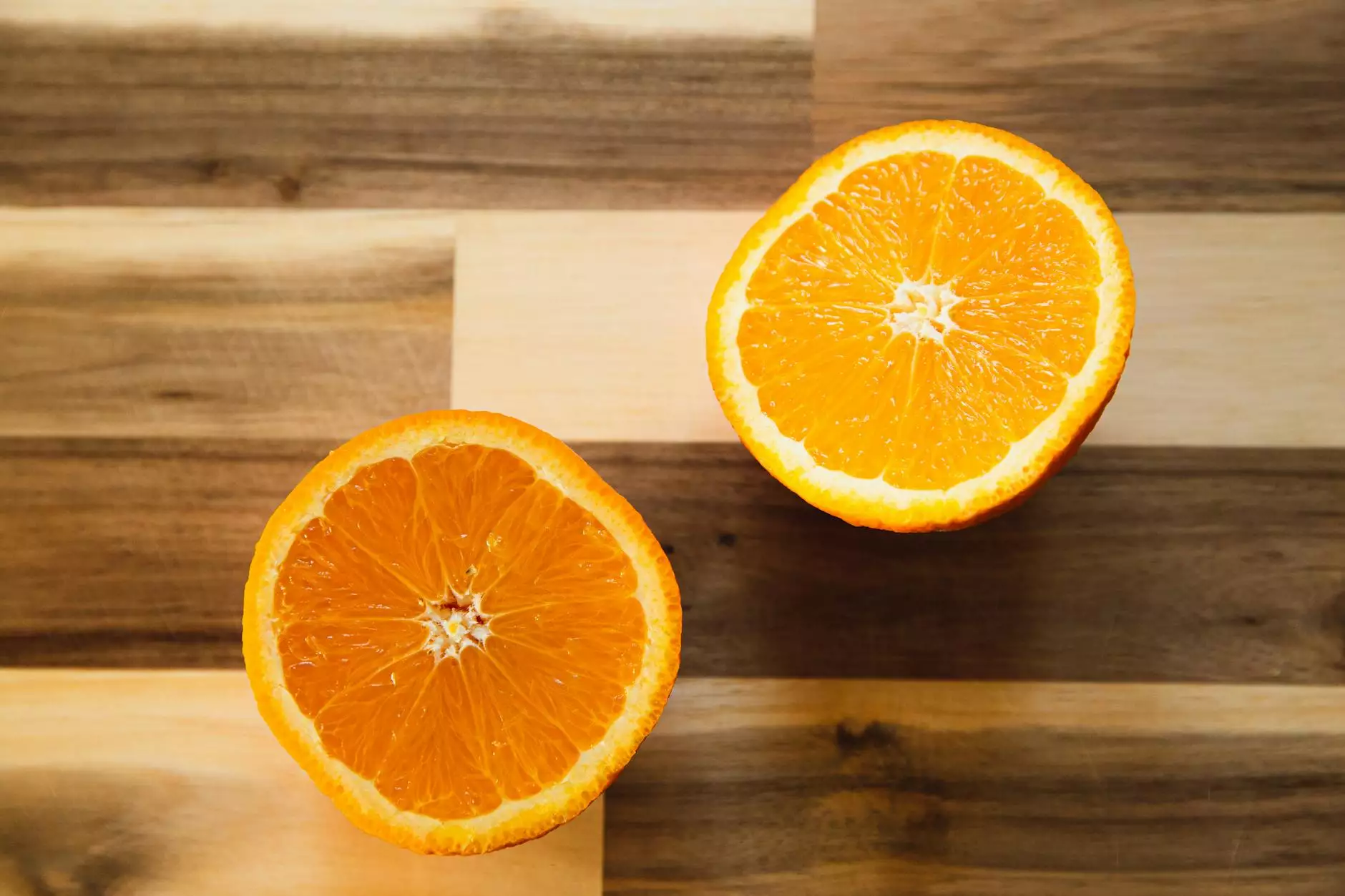Inflammation Reducing Foods: Your Guide to a Healthier Life

Inflammation is a natural part of the body's defense system, essential for healing and protection. However, chronic inflammation can lead to serious health issues, including heart disease, diabetes, and certain cancers. The good news is that your diet can play a significant role in managing inflammation. In this comprehensive guide, we will explore various inflammation reducing foods that can help you lead a healthier life.
Understanding Inflammation
Before diving into the foods that can help reduce inflammation, it’s crucial to understand what inflammation is. Inflammation is the body's response to injury or infection, characterized by redness, heat, swelling, and pain. While acute inflammation is beneficial for healing, chronic inflammation can persist for months or years, causing damage to tissues and organs.
The Importance of Diet in Managing Inflammation
Your diet plays a pivotal role in either exacerbating or alleviating chronic inflammation. Certain foods can trigger inflammation due to their high content of processed sugars, unhealthy fats, and additives. Conversely, inflammation reducing foods can help lower inflammation levels in the body by providing essential nutrients and antioxidants. By incorporating anti-inflammatory foods into your diet, you can significantly improve your overall health.
Top Inflammation Reducing Foods
1. Fatty Fish
Fatty fish such as salmon, mackerel, and sardines are rich in omega-3 fatty acids, which are known for their anti-inflammatory properties. Omega-3s help reduce the production of pro-inflammatory molecules and promote anti-inflammatory responses in the body.
2. Nuts and Seeds
Nuts and seeds are nutrient-dense and full of healthy fats, fiber, and antioxidants. Almonds, walnuts, chia seeds, and flaxseeds are particularly effective at lowering inflammation levels.
3. Berries
Berries like blueberries, strawberries, and raspberries are packed with vitamins and antioxidants such as anthocyanins, which have been shown to manage inflammation effectively.
4. Leafy Greens
Dark leafy greens, such as spinach, kale, and collard greens, are rich in antioxidants and essential nutrients. They contain high levels of vitamins A, C, and K, which are vital in combating inflammation and supporting overall health.
5. Olive Oil
Extra virgin olive oil is not only a staple in Mediterranean diets but also a powerful anti-inflammatory food. It contains a compound called oleocanthal, which has effects similar to those of ibuprofen in reducing inflammation.
6. Turmeric
Turmeric contains curcumin, a compound known for its strong anti-inflammatory and antioxidant properties. It has been used in traditional medicine for centuries and can be easily added to various dishes.
7. Garlic
Garlic not only adds flavor to your meals but also offers various health benefits, including reduced inflammation. It contains sulfur compounds that help lower inflammation levels in the body.
8. Ginger
Ginger is another anti-inflammatory powerhouse. Its bioactive compounds, gingerols, have been shown to reduce inflammation in conditions like arthritis and muscle soreness.
9. Avocados
Avocados are not just creamy and delicious; they are also rich in monounsaturated fats and antioxidants. They help to lower inflammation and support overall heart health.
10. Green Tea
Green tea contains epigallocatechin gallate (EGCG), an antioxidant that has powerful anti-inflammatory effects and can help reduce inflammation markers in the body.
Building an Anti-Inflammatory Diet
Creating a diet focused on inflammation reducing foods doesn’t mean you have to drastically change your eating habits. Instead, focus on adding more of these foods into your meals.
Tips for Creating Your Anti-Inflammatory Meal Plan
- Start Your Day Right: Incorporate berries or nuts into your breakfast.
- Snack Smart: Choose snacks that include seeds, nuts, or slices of avocado.
- Add Color to Your Plate: Include a variety of colorful fruits and vegetables at every meal.
- Season Wisely: Use turmeric and ginger in your cooking for added flavor and health benefits.
- Hydrate: Drink green tea instead of sugary beverages to reap its anti-inflammatory benefits.
The Role of Lifestyle in Managing Inflammation
While diet plays a critical role in managing inflammation, lifestyle factors are also important. Regular physical activity, maintaining a healthy weight, managing stress levels, and getting adequate sleep are all vital components of an anti-inflammatory lifestyle.
Exercise
Engaging in regular exercise helps lower inflammation levels and boosts overall well-being. Aim for at least 150 minutes of moderate aerobic exercise each week, complemented by strength training exercises.
Stress Management
Chronic stress can contribute to inflammation. Techniques such as meditation, deep breathing, and yoga can help manage stress and reduce inflammation.
Sleep Quality
Quality sleep is essential for maintaining overall health and can help lower inflammation. Aim for 7-9 hours of uninterrupted sleep each night.
Conclusion
Integrating inflammation reducing foods into your daily routine is a powerful strategy for enhancing your health and well-being. By focusing on a balanced diet rich in healthy fats, antioxidants, and essential nutrients, along with a healthy lifestyle, you can significantly reduce your risk of chronic diseases associated with inflammation. Remember, small changes can lead to significant improvements, so start incorporating these foods and healthy habits into your life today!
Frequently Asked Questions
Can I still enjoy foods that are not anti-inflammatory?
Yes! Moderation is key. You don't have to eliminate all non-anti-inflammatory foods. Instead, focus on creating a balanced diet where the majority of your food intake is from anti-inflammatory sources.
How quickly can I see improvements in inflammation?
Many people report feeling better within a few weeks of adopting an anti-inflammatory diet. However, each individual's response may vary based on their unique health conditions and lifestyle factors.
Are there any foods I should avoid?
Aim to limit your intake of processed foods, sugary beverages, refined carbohydrates, and trans fats, as these can promote inflammation.
Can supplements help with inflammation?
Some supplements, such as omega-3 fatty acids, turmeric, and ginger extract, may help reduce inflammation. However, it's best to consult with a healthcare professional before starting any new supplement regimen.









